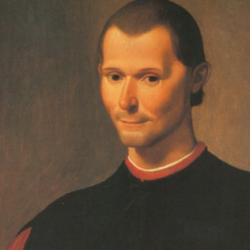“Populism seems more and more to be an inevitable drift of unqualified liberal democracy,” writes John Milbank (244). Well, duh, we might say, except that this appears in a book published in 2009 (The Future of Love), before Le Pen or Brexit or Trump were the stuff of dreams and nightmares. And the essay itself was first published several years before that, in 2006.
That “inevitable” is key. Milbank sees populism as a development within liberalism, not a reaction to it, a contemporary sign that, as Tocqueville already warned, “liberal democracy can itself devolve into a mode of tyranny” (243). He notes several reasons why liberal democracy might drift toward tyranny—“an intrinsic indifference to truth, as opposed to majority opinion, means in practice that the manipulation of opinion will usually carry the day.” Governments find that fear is more effective than promises (243).
Fear isn’t merely pragmatic. Citing Pierre Manent’s Intellectual History of Liberalism, Milbank argues that liberalism is founded on “the ontological primacy of evil and violence: at the beginning is a threatened individual, piece of property, or racial terrain.” This is sometimes confused with the Christian doctrine of sin, but it’s radically different. In Christianity, “all-pervasive evil for which we cannot really account . . . is yet all the same a contingent intrusion upon reality, which can one day be fully overcome through the lure of the truly desirable which is transcendant goodness.” In place of orthodoxy, liberalism “begins with a disguised naturalization of original sin as original egotism: our own egotism which we seek to nurture, and still more the egotism of the other against which we need protection” (243–4).
This “Manichean” outlook provides the bridge between liberalism and populism: “increasingly, a specifically liberal politics . . . revolves around a supposed guarding against alien elements: the terrorism, the refugee, the person of another race, the foreigner, the criminal.” Thus “liberalism . . . tends to cancel those values of liberality (fair trial, the right to a defense, assumed innocence, habeas corpus, a measure of free speech and free inquiry, good treatment of the convicted) which it has taken over, but which as a matter of historical record it did not invent, since they derive rather from Roman and Germanic law transformed by the infusion of the Christian notion of charity” (244).
Milbank advocates security and individual choice as “penultimate” goals, but once they become primary, “then almost any suspensions of normal legality can tend to be legitimated in the name of these values” (244). Because of its heretical foundations, liberalism tends toward its own erasure in tyranny and populism, or populist tyranny.











